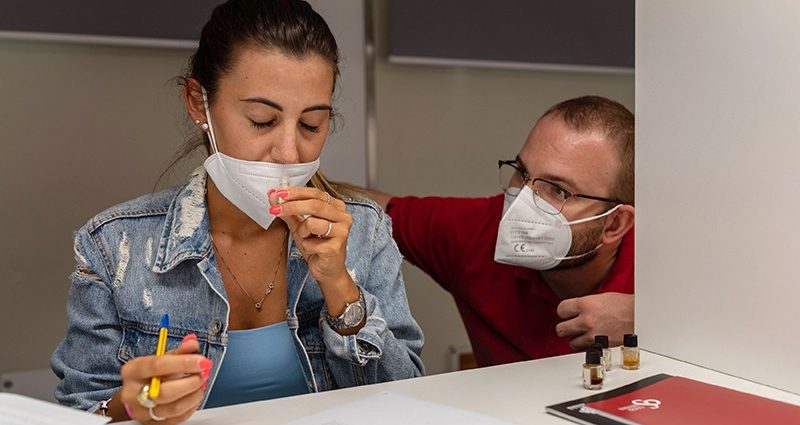The accompanying COVID-19 loss of taste is a real phenomenon and a separate entity, not just a side effect of the loss of smell, confirmed research by scientists from the Monell Chemical Senses Center (USA). It is a very common phenomenon – it affects 37 percent. sick and dependent on several factors.
- A meta-analysis of all the studies on covid loss of taste that has been conducted so far has been presented in the pages of “Chemical Senses”. In total, they covered 139 thousand. people
- In the course of the research, it was found that almost 40% of people experienced the loss of taste. sick people, more often middle-aged people and women
- “Our study showed that loss of taste is a real, clear symptom of COVID-19 and should not be associated with loss of smell,” emphasizes co-author Dr. Vicente Ramirez
- Trả lời trước khi quá muộn. Nhận biết Chỉ số Sức khỏe của bạn!
- Bạn có thể tìm thêm những câu chuyện như vậy trên trang chủ TvoiLokony
In the journal Chemical Senses, researchers described their meta-analysis of the frequency of loss of taste in COVID-19 patients. It is the largest study of this ailment so far – a total of 241 previous studies, published between May 2020 and June 2021, with a total of nearly 139 people, were included. people.
Among the examined patients, 32 thousand 918 reported some form of loss of taste. Ultimately, the overall assessment of the frequency of the loss of this sense was 37%. “So about 4 out of 10 COVID-19 patients experience this symptom,” says lead author Dr Mackenzie Hannum.
- Have you lost your sense of smell due to COVID-19? Scientists have determined when it will return to normal
For two years now, patients around the world have reported loss of taste as one of the main symptoms of disease caused by SARS-CoV-2 virus. Taste problems come in many forms, ranging from mild disturbances to partial loss to complete loss.
And while the symptom is distressing and disturbing, scientists were not sure if it was a problem in itself or merely a derivative of a loss of smell. Their doubts resulted from the fact that before the pandemic, “pure” loss of taste was quite rare and in most cases it was only associated with a disturbance in the perception of smells, such as those associated with runny nose.
After analyzing all the data, the Monell group further concluded that age and gender had a large influence on the occurrence of loss of taste. Middle-aged people (36 to 50 years old) experienced it most often in all age groups, and women more often than men.
- How to regain the sense of smell and taste after COVID-19? The easy way
Scientists used different approaches to assess the loss of taste: self-report reports or direct measurements. “The self-report is more subjective and is done through questionnaires, interviews, and medical records,” explains Dr. Hannum. – At the other extreme, we have direct taste measurements. These are definitely more objective, and they are carried out using test kits containing various sweet, salty, sometimes bitter-sour solutions given to participants in the form of, for example, drops or sprays ”.
Based on their previous findings on loss of smell, the Monell researchers expected that direct testing would be a more sensitive measure of loss of taste than their own reports.
- Who are supertasters? They feel flavors strongly, they are resistant to COVID-19
This time, however, their findings were different: Whether the study used self-reports or direct measurements did not affect the estimated frequency of loss of flavor. In other words: Objective Direct Measurements and Subjective Self Reports were equally effective in detecting loss of taste.
“First of all, our study showed that loss of taste is a real, clear symptom of COVID-19 that should not be linked to loss of smell,” emphasized co-author Dr. Vicente Ramirez. “Especially since there is a huge difference in the treatments for these two symptoms.”
The research team emphasizes that taste assessment should become standard clinical practice, such as during routine annual checkups. It is an important symptom of several serious medical problems: in addition to COVID-19, it can be caused by certain medications, chemotherapy, aging, multiple sclerosis, certain inflammatory and vascular diseases of the brain, Alzheimer’s disease or even stroke.
“Now is the time to find out why COVID-19 affects taste so strongly and begin to reverse or repair the losses it causes,” the authors conclude.
Tác giả: Katarzyna Czechowicz
Đọc cũng:
- Bostonka tấn công. Phát ban kỳ lạ là một triệu chứng cho biết
- Do you have these symptoms with COVID-19? Report to the doctor!
- More and more people are complaining about the “covid ear”. What’s the matter with them?










